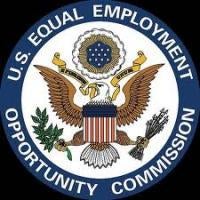Company Unlawfully Rejected an Applicant Because of Deafness, Federal Agency Charges
SEATTLE - Grocery store giant Safeway, Inc. violated federal law by refusing to accommodate and hire a qualified deaf applicant for various store jobs in Seattle, Wash., the U.S. Equal Employment Opportunity Commission (EEOC) charged in a lawsuit filed today.
The EEOC said that Joel Sibert applied online in July 2017 for food, courtesy, produce and Starbucks clerk jobs at Safeway Store #1551 in Seattle's Capitol Hill neighborhood. Based on his qualifications and experience working similar jobs, Sibert was selected for an interview. However, once Sibert explained that he is deaf and would need an interpreter for the interview, the in-store hiring recruiter told him she did not know anything about providing interpreters. When Sibert offered names and contact information for qualified interpreters Safeway could enlist for that purpose, the recruiter declined the offer but said she would get back to him. Sibert heard nothing further, so he placed multiple calls to the store over the following week, only to be placed on hold or told no one was available, the EEOC said.
Rejecting a qualified applicant because of disability violates the Americans with Disabilities Act (ADA). The EEOC filed suit in U.S. District Court for the Western District of Washington (EEOC v. Safeway, Inc., Case No. 2:18-cv-01352 ) after first attempting to reach a pre-litigation settlement through its conciliation process. The EEOC seeks monetary damages for Sibert and injunctive relief, which typically includes training on anti-discrimination laws, posting of notices at the worksite, and compliance reporting.
"Evaluating an individual for his potential in the workplace - without letting fears and stereotypes get in the way - is absolutely critical in the hiring process," EEOC Seattle Field Director Nancy Sienko said.
Sienko noted that eliminating barriers in hiring, especially hiring practices that discriminate against people with disabilities, is one of six national priorities identified by the Commission's 2017-21 Strategic Enforcement Plan (SEP).
EEOC Senior Trial Attorney Teri Healy added, "This candidate was well-qualified and deserved a chance to work. In fact, supervisors at his prior workplace were very happy with his performance, and his customers loved him. There's no reason he wouldn't have done just as well at Safeway if it were not for the disability discrimination that prevented his hire there."
According to its website, http://www.safeway.com, Safeway became a subsidiary of Albertsons, Inc. in 2015. Prior to the merger with Albertsons, Safeway operated 1,335 stores in the United States and employed 138,000 individuals.
Read this post on the EEOC website here.




 />i
/>i

